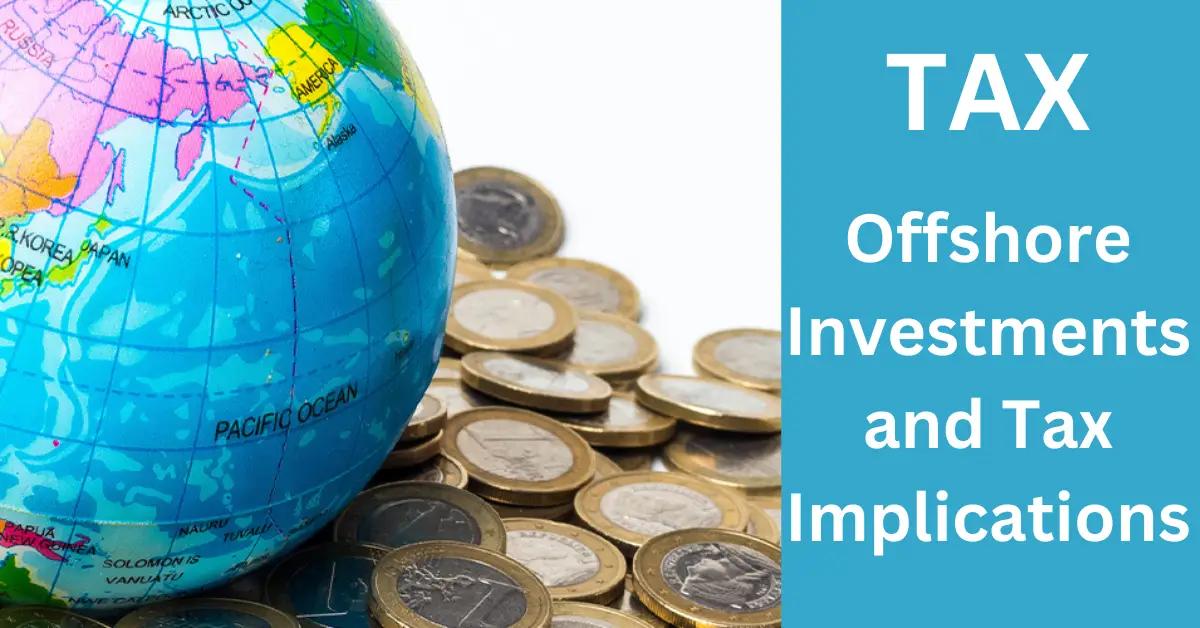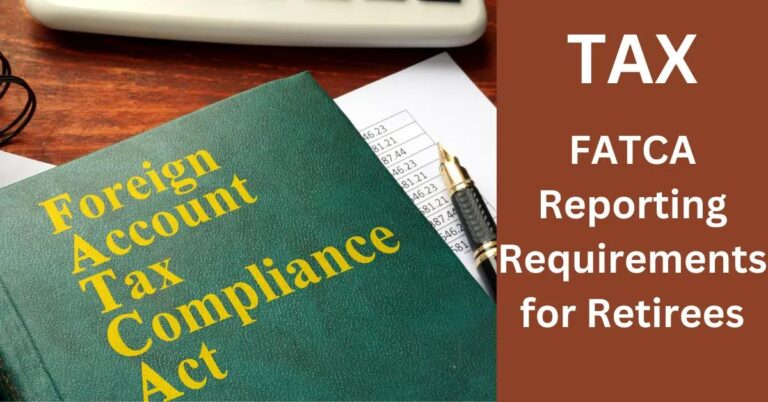TL;DR:
- Offshore investments involve placing money in foreign countries, often for tax benefits and asset protection.
- Common vehicles include offshore mutual funds, hedge funds, and bonds.
- Benefits: Tax efficiency, higher yields, diversification, privacy, and asset protection.
- Risks: Varying laws, political instability, potential penalties for non-compliance.
- Tax requires reporting offshore gains; non-compliance leads to severe fines.
- Legal and ethical issues arise, requiring adherence to global tax standards to avoid scrutiny.
- Financial centers like the Cayman Islands offer strategic advantages but require compliance with international regulations like FATCA and CRS.
- Expert advice and continuous legal updates are crucial for optimized, compliant offshore investments.
Are you curious about how offshore investments and taxes interact? As a seasoned expatriate, understanding financial strategy in a foreign land becomes crucial. Navigating offshore investments can offer exciting opportunities but also complex tax implications. In this guide, I'll break down how offshore investments work and explain the tax implications tailored for a global nomad like you. Whether you’re seeking tax efficiency or exploring investment risks, this insight will aid your financial planning abroad. Let's dive in!
How Do Offshore Investments Work?
Offshore investments allow you to place your money in a country abroad. This strategy uses offshore investment vehicles, such as trusts, funds, or companies, to manage wealth. The mechanics of these investments often hinge on taking advantage of different laws in various countries. Sounds interesting, right?
Types of Offshore Investment? You have a few options here. Common types include offshore mutual funds, hedge funds, and bonds. Each offers unique benefits and challenges, based on the rules of the country.
Offshore Investment Example? Let me give you a clear picture: Let's say you buy stocks through an offshore account in the Cayman Islands. The rules there might let you skip certain taxes that you would pay at home. That could mean more money in your pocket!
Now, let’s talk about the benefits and risks of offshore investment strategies. The main draw often comes from potential tax benefits and asset protection. You might use these strategies to protect your assets or even grow them. For some, privacy also counts as a top reason to invest offshore.
But, and this is important, there are risks too. Not all countries have the same financial and political stability. Changes in laws can also affect your assets. So, you must carefully weigh the options.
All investments carry some element of risk, and offshore investments are no different. If managed well, offshore investments can diversify and protect your wealth. However, make sure you understand the landscape before making any choices. Want to learn more about how offshore centers operate? Explore the topic further here.
Being an informed investor means knowing all there is to know about offshore investments. Happy investing!
What Are the Tax Implications of Offshore Accounts?
Do you have to pay taxes on offshore accounts? Yes, you must. When it comes to tax on offshore investments, every country has its own rules. Some nations make you report offshore gains to avoid nasty fines.
Different regions have different offshore taxation frameworks. Knowing these rules can save you a lot of trouble. In some places, not paying taxes can even land you in jail.
How are offshore funds taxed? Most countries tax residents on worldwide income, including offshore earnings. It's crucial to declare offshore accounts to avoid hefty penalties. Some countries want a detailed account of all foreign earnings. These reporting requirements can be tricky.
Tax compliance means following these rules. By adhering to offshore tax compliance standards, you can sleep easy. Always make sure your paperwork is in order. For many, this means hiring experts who know the ropes.
Offshore accounts in different places have different tax rates and rules. That’s why you should choose the right location for funds. Some places offer lower taxes than others. But moving funds to dodge taxes? That could mean big trouble.
Let’s talk about penalties for non-compliance. Failure to report offshore accounts can result in serious fines. Some penalties can take a big chunk of your savings.
To avoid these issues, proper tax planning is key. Always consult experts who can guide you in the right direction. They can help you navigate each location's tax rules and regulations.
Finally, keep up with laws that might change. New rules pop up, which can affect your investments. Staying informed helps protect your money and future. For more detailed compliance guidelines, visit IRS’s Official Website for updates.
Are There Benefits to Offshore Investments?
Offshore investments can offer several appealing benefits. One is tax efficiency. By investing offshore, you might reduce your tax bills. Some countries tax offshore earnings at lower rates or offer tax deferral, letting you reinvest more profits. You can benefit from potential tax savings through strategic placement of your funds.
Another advantage is the chance for higher yields and diversification. Offshore accounts can access global markets, offering investment options not available at home. This spreads risk and can lead to better returns on your investments. For instance, investing in both local and foreign markets protects you from downturns in any single market.
Privacy and asset protection are also key benefits. Offshore banking can help safeguard assets from legal issues and ensure confidentiality. Many offshore locations have strong privacy laws, which keep your financial dealings secure. They can serve as a shield, protecting your investments from external claims and safeguarding your wealth.
There are also distinct banking and currency exchange advantages. Offshore banks often deal in multiple currencies, easing the process of international transactions. This means you can manage your money more flexibly across different regions, which is crucial if you conduct business globally or have international needs.
While these are enticing benefits, it's vital to balance them with a sound understanding of the legal and financial landscape. Consult with experts to ensure compliance with all regulations. This avoids potential legal ramifications, ensuring a safe and profitable offshore investment experience. For additional insights and support, you can visit this link.
Navigating these grounds requires careful planning. Each benefit comes with its own set of rules and requisites. Being aware of them helps to maximize gains while minimizing risks and complications. Offshore investment could be the stepping stone for your financial growth, provided it's executed mindfully and with guidance.
What Are the Legal and Ethical Considerations in Offshore Investing?
Is offshore investment legal? Yes, when done within rules. Offshore investing involves moving money to foreign accounts. Laws differ across countries, but many allow offshore accounts. It's crucial to follow these laws to avoid any issues.
Legal frameworks guide offshore investments. You must know the laws in each jurisdiction involved. This guides what is possible and how to stay compliant.
Offshore investing is often seen with suspicion. Why? Because of ethical concerns and the public's view. Some see it as avoiding taxes, even when it's legal. Transparency helps improve trust and perception.
Another key point is knowing the difference between tax avoidance and tax evasion. Tax avoidance is legal; it uses available laws to reduce taxes. However, tax evasion is illegal and involves not reporting all income. Always ensure your methods are on the right side of the law.
What are the disadvantages of offshore investing? Risks include legal challenges and moral questions. Heavy penalties exist for failing to comply with laws. Always check the legal and ethical side of each move. You might face increased scrutiny by tax authorities.
Compliance is a must for any offshore investor. This means meeting all rules and laws in every country where you hold money. Ignorance is not a defense. It's your duty to know and follow these rules. Visit OECD Guidelines for more information. They provide clear advice on global tax compliance.
In sum, legal and ethical factors are complex yet vital in offshore investing. Always stay informed and compliant to reap the benefits responsibly. This guides your investment endeavors positively. Thus, due diligence is more important than ever.
How Can Offshore Investments Be Optimized for Tax Efficiency?
To boost tax efficiency in offshore investing, start with clear strategies for tax planning. You might ask, "What strategies work best for my needs?" The SQuAD method tells us that using offshore trusts and companies can provide these benefits. These tools help manage taxes and shield assets. Setup businesses in tax-friendly areas to pay less corporate tax.
Understanding international tax treaties and agreements is also key. Ask, "How can these treaties impact my taxes?" SQuAD answers that treaties prevent double taxation by setting clear rules. They help reduce tax clashes between countries and save money.
Do not overlook currency risks and investment returns. Both are tricky but crucial. Ask, "How do I manage these risks?" The answer is simple: diversify and track currency trends. This helps cushion against currency swings and keeps your investments stable.
Offshore trusts serve many purposes, from tax perks to asset safety. If planned well, they keep funds away from local taxes. Form trusts in countries with treaties favorable to your nation, leveraging these fit to your needs.
Forming offshore companies? Start by knowing the ins and outs of different countries' tax benefits. Many offer incentives, like lower taxes or none at all. Always follow local laws and be transparent in reporting.
Currency fluctuation can hurt investments. Consider mixed-currency funds to guard against risks. Mix currencies to balance out changes; it keeps profits stable.
Remember, regulations change often. Always keep updated. Knowing tax rules in advance prevents issues. Access reliable resources for updates. If needed, consult experts who specialize in offshore tax planning. They help you avoid pitfalls and make the most of your efforts. Here's a link to learn more about offshore investments and legalities.
What Role Do Financial Centers and Regulations Play in Offshore Investing?
Offshore investing is tied closely to financial centers and their rules. These hubs are regions with favorable financial laws. They help investors gain tax benefits and privacy. Popular centers, like the Cayman Islands, Bermuda, and Luxembourg, draw investors for these perks.
But what about international financial regulations? They ensure fairness and safety. Countries must follow rules from bodies like the International Monetary Fund (IMF). It’s vital for investors to know these rules. Otherwise, they face risks and penalties.
How do agreements like FATCA and CRS impact offshore investing? FATCA, from the U.S., checks on citizens' foreign accounts. CRS, a global standard, requires countries to share account data. They combat tax evasion, so investors must report earnings properly. Ignoring these can lead to hefty fines and legal trouble.
So, how can you stay updated with changes in regulations? Read financial news and subscribe to updates from regulatory bodies. It's also wise to have a trusted financial advisor. This way, you can adjust your investment strategies swiftly.
To sum up, financial centers provide opportunities but come with rules. Understanding offshore financial centers and global financial regulations is key. To stay out of trouble, comply with all global financial standards and remain informed on changes. This proactive approach aids in securing the benefits while staying within the legal framework. By aligning with these standards, you safeguard your investments against unnecessary risks and ensure their growth is both sustainable and compliant.
Conclusion
Offshore investments offer a mix of opportunities and challenges. Understanding various investment strategies and vehicles helps you navigate the options. Always weigh the benefits against the risks like tax and legal issues. Tax efficiency is crucial, as are local and international compliance rules. When done right, offshore investments can provide privacy, higher yields, and asset protection. Stay informed about financial centers and regulations to optimize returns. Remember, compliance ensures legal and ethical integrity. Being knowledgeable equips you to make sound offshore investment choices.












